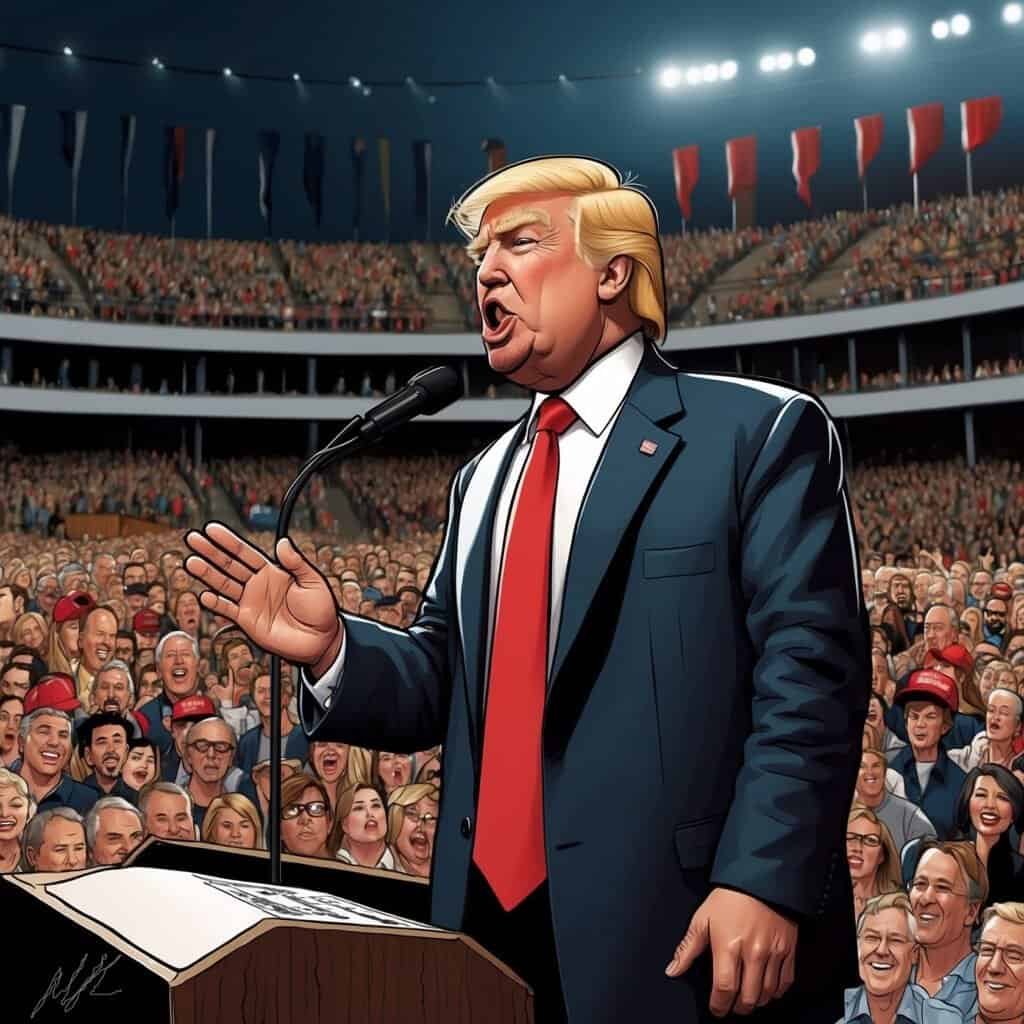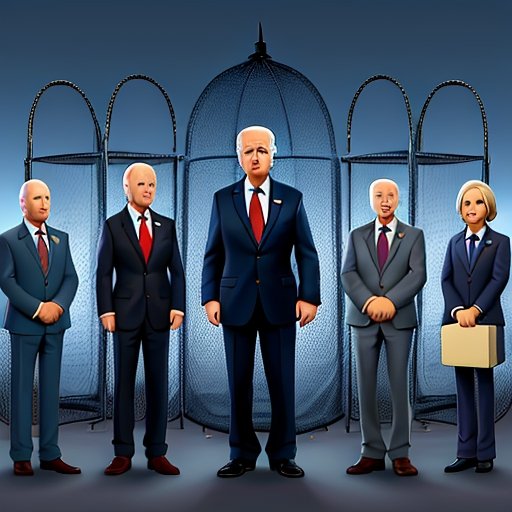The American political landscape is known for its turbulence, and with the 2024 presidential election just days away, it’s become a hotbed of emotional narratives. Kamala Harris and Michelle Obama have taken center stage, crafting stories that seem designed to incite fear about what a second Trump term could bring. But it’s time to tune out the noise and take a hard look at what’s real, as responsible citizens should.
Let’s get one thing clear: the warnings about “assaults” on women’s healthcare and other dramatic claims aren’t backed by the facts. Ms. Obama has painted a bleak picture, warning of catastrophic consequences for women’s rights under a Trump presidency. However, the numbers tell a different story. During Trump’s first term, unemployment among women dropped to some of the lowest levels on record, and women-owned businesses thrived like never before. That’s not backward thinking; that’s real, measurable progress.
And when it comes to local decision-making on issues like women’s rights, allowing states to have a say isn’t a step backward—it’s a recognition that one-size-fits-all policies don’t always fit. Giving communities the power to shape their own laws means that local values and needs can be prioritized, rather than forcing a one-size-fits-all solution from Washington. At the end of the day, real change happens at the local level, where people have a direct voice in shaping their futures.
So, while some might be trying to spin a narrative of fear, it’s our job to separate facts from fiction and make decisions that are best for the nation. America deserves leadership that values progress over panic and local voices over centralized mandates.
Political Narratives and Their Impact
Kamala Harris’ narrative seems less about real threats and more about her own struggles to connect with voters. Her difficulty in clearly laying out policy ideas and her frequent off-script word salads do more to muddle her message than inspire confidence. Instead of rallying voters with solid plans, she’s doubling down on trying to brand Trump and his supporters as dangers to democracy. But when you mix that with high-profile celebrity endorsements, it starts to feel more like a quest for headlines than a serious conversation about the country’s future. It’s a strategy that looks like a PR campaign rather than a genuine effort to lead. Good luck with that!
Comparing Political Narratives
| Aspect | Harris/Obama Narrative | Trump Administration Record |
|---|---|---|
| Women’s Rights | Claimed threats to healthcare | Low unemployment, increased opportunities; Local vs Washington control |
| Democracy | Alleged threats to democratic principles | Diverse voices and debate encouraged |
| Economic Impact | Fear of regression | Job growth and economic recovery |
And then there’s Elon Musk, a guy who’s more comfortable launching rockets than political campaigns, but he’s got a perspective worth considering. Musk offers a different take, suggesting that painting Trump as a menace to democracy misses the point. Isn’t democracy supposed to be about hearing all sorts of voices and ideas? Musk believes that real democratic strength comes from embracing open conversations, not shutting them down. His point is simple: the goal should be to encourage debate, not steer it—and when we keep the dialogue open, everyone gets a seat at the table.
January 6: A Different Perspective
Musk’s take on the January 6 events offers a fresh lens on what’s become a very charged conversation. While many rushed to label the incident as an insurrection, Musk’s perspective highlights the gap between narratives and reality. He sees it less as a deliberate uprising and more as a moment that’s been swept into political maneuvering. And he’s not alone in this view—plenty of folks believe that the narrative spun around that day doesn’t fully address the real concerns many Americans have about the electoral process.
One such concern is mail-in ballots. Musk’s points on this issue tap into a deeper conversation about electoral integrity, which isn’t just political noise; it’s a genuine topic that matters to a lot of voters. For many, it’s not about rejecting change, but about wanting to make sure the systems in place are reliable and secure. Musk’s stance resonates because it touches on something fundamental—trust. After all, democracy thrives on trust, and when people voice concerns about elections, it’s worth a discussion rather than dismissing it out of hand.
In typical Musk fashion, he’s approaching these heavy topics without the usual political filters, which is probably why his ideas strike a chord. He’s not a politician rehearsing talking points; he’s a guy who asks questions and isn’t afraid to speak his mind.
Political Tactics and Their Implications
The bigger picture behind Harris’ “bash Trump” strategy reveals a shift in political priorities. By labeling Trump’s supporters as stuck in the past, Harris and Obama are leaning into division instead of bringing people together. But here’s the thing—Trump’s record paints a very different picture. His policies drove economic recovery and brought back opportunities when the country needed it most. It’s not about going backward; it’s about moving forward with a plan that worked.
Key Achievements of the Trump Administration
- 2017: Unemployment rates begin to decline
- 2018: Tax cuts and jobs act implemented
- 2019: Record-low unemployment rates achieved
- 2020: CARES Act passed in response to COVID-19
Part of the Trump administration’s success was defined by unprecedented relief efforts during the COVID-19 pandemic, where support was extended to American families and businesses through relief acts like the CARES Act. This was all about tangible support to the American people, not empty rhetoric.
The Role of Conservative Values
Conservative values emphasize the importance of personal responsibility and the idea that less government interference often leads to more freedom. In a time when government reach seems to be growing by the day, these principles are more relevant than ever. Critics might say that limited government and individual responsibility are outdated, but history shows they’re the backbone of economic growth and personal freedom. These values are about cutting regulations, tightening budgets and empowering people to take control of their lives and make their own choices. It’s a philosophy that keeps the focus on liberty and self-determination, which is what this country was built on in the first place.
Conclusion: A Call for Informed Decision-Making
As we approach this pivotal election, it’s more important than ever for Americans to see through the smoke and mirrors. Let’s keep our eyes on what really matters—substantive debates and policy achievements. Over the past four years, we’ve seen what Harris brings to the table, or doesn’t.
With Trump’s presidency, we saw what’s possible under leadership that values economic strength and unity over fear The future of this nation can be prosperous, inclusive, and free, but it depends on the choices we make now. We need leadership rooted in facts, not fear-mongering, and focused on bringing people together.
The stakes are clear, and the choice is ours. Starting right NOW, let’s not just vote for a candidate; let’s vote for a direction that sets America on a path of strength and opportunity. Let’s make it happen—vote for Trump!






